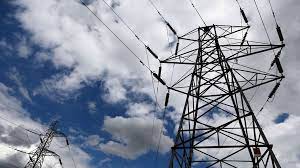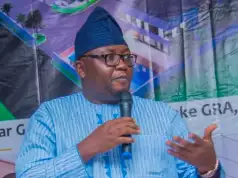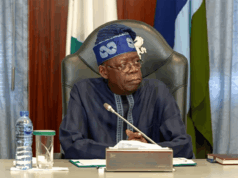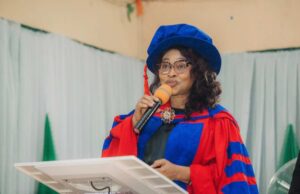The Federal Government is planning the construction of renewable power plants to boost electricity generation across the nation.
The Minister for Power, Adebayo Adelabu, disclosed this during a meeting with foreign agencies on Thursday.
In a chat with Adelabu’s media aide, Bolaji Tunji, on Friday, the minister was quoted to have highlighted that the creation of renewable power plants would be one of his strategies to ensure incremental improvement in national power supply.
A renewable power plant is a facility that generates electricity from a renewable energy source, such as solar, wind, water, or geothermal energy.
These types of power plants harness the power of the sun, wind, water, or the earth’s heat to produce electricity without using fossil fuels like coal, oil, or natural gas.
Adelabu had promised to ensure that the Rural Electrification Agency lives up to expectations by serving the underserved and the unserved rural communities that may not be commercially attractive to the distribution companies.
According to Tunji, the minister is “focusing on distributed power by intensifying efforts to raise the volume of renewable energy to national capacity, with focus on developing small hydropower plants along the 26 small dams in the county”.
The hydropower plants, the minister had stated, can be “hybridised with solar when the water level goes down”.
He added that solar options are being considered for the northern part of the country, including the use of windmills to generate power offshore along the coastal part of the country.
The minister said further that the main problem of the sector is liquidity and funding.
He added that the sector is supposed to generate funds if allowed to operate a commercial model, where all the costs attributed to the generation of power, transmission and distribution are recovered through the tariffs, while the operators are given a good markup.
Adelabu was reported to have noted that the power sector is not allowed to charge cost-reflective tariffs because the government promised subsidy but with no timely release of money.
“Once the sector suffers from liquidity challenge, there would be no investment in the sector and that is why the structures are dilapidated.
“It’s important we resolve the liquidity issue,” he had emphasised.










